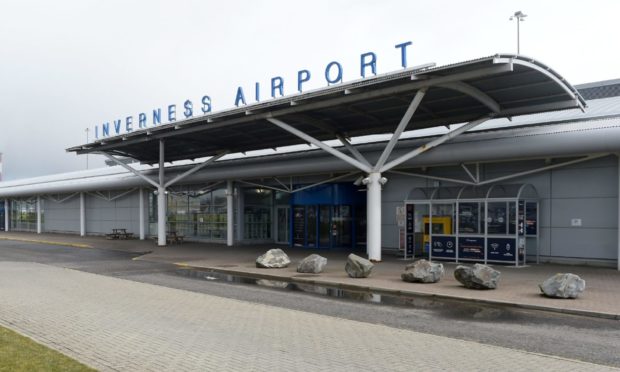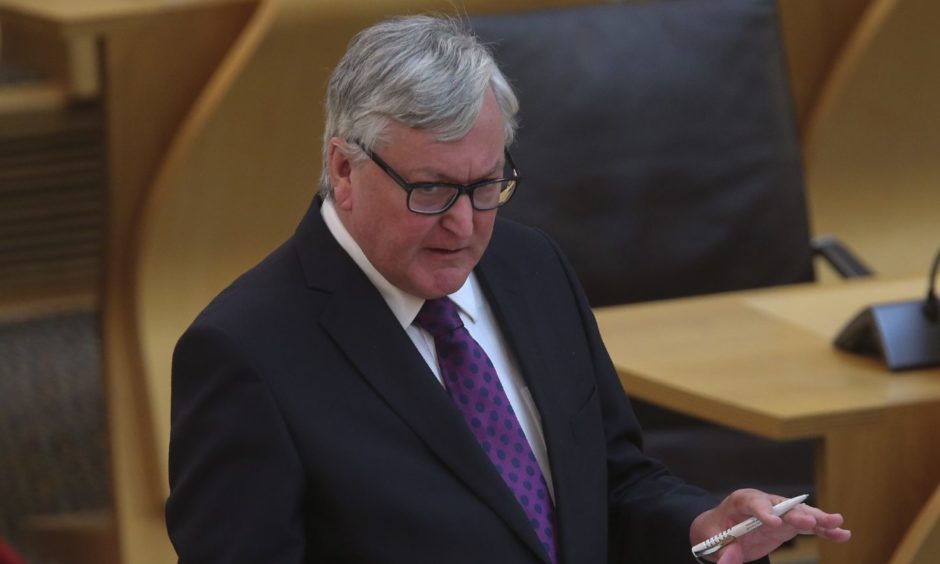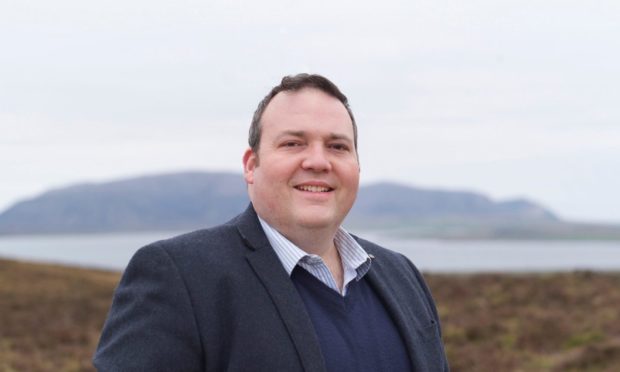The unemployment rate in some parts of the Highlands has almost trebled as Covid wiped billions from the tourism industry, MSPs have been told.
Charlotte Wright, Highlands and Islands Enterprise (HIE) chief executive, said areas along the west coast had been “really badly hit” by the pandemic.
Appearing before Holyrood’s Tourism Committee, Ms Wright said Argyll’s unemployment rate has doubled to 6.5% since last year, while in Lochaber, Skye and Wester Ross the current unemployment rate of 5.3% is three times the figure at the equivalent date last year.
That was the equivalent of up to a 19% hit on GDP but with the hospitality sector suffering disproportionately with a 40% decline.
‘Real impact could be more significant’
Ms Wright warned that the eventual figure would be worse as a result of the second coronavirus wave and consequent restrictions.
“There is a health warning there too, because that was taken at autumn time last year when we weren’t really predicting the current lockdown as well,” Ms Wright said. “So, actually, the real impact could be more significant.”
A survey of Highland businesses suggested that 80% were operating at “way below” pre-Covid levels, compared with 50% who felt that way elsewhere in the country.
There remained concerns about the loss of EU workers, who had been “really important” to an area that had struggled with population decline.
“This is anecdotal at the moment, but we are hearing that migrant workers are moving away,” Ms Wright said.
Some sectors such as the cruise industry had been “completely lost”, she said. The number of passengers using Highlands and Islands Airports Ltd had fallen by almost 80% with the largest, in Inverness, suffering a decline of more than 90%.
Later Tourism Secretary Fergus Ewing moved the discussion on to international air travel and warned the committee it was unclear when it could resume.
Mr Ewing said he is hopeful that domestic tourism may be able to restart this year with the most optimistic predictions aiming for March or April.
But he was most concerned about businesses, like large hotels, which relied on international tourism.
“If you ask me to identify sectors about which I am most concerned, it would be those either wholly or substantially dependent on international trade,” Mr Ewing told MSPs.
“Because I think most of us feel instinctively it may be possible for tourism to resume at some point this year, some may say it may be in March/April, others may be more sceptical and pessimistic.
“I think most of us feel the staycation market should revive and it will be busy, as it was last year, if we are able to travel again safely.
“But I think most of us also realise that the prospect of the resumption of international travel is far, far less clear in prognosis.
“We just don’t know at the moment how effective vaccinations are going to be, whether new strains of the virus are going to cause an ongoing problem and whether vaccines are going to be effective against them.
“So the future of businesses involved in international trade – and that includes aviation, airlines, hotels, many visitor attractions – I think we may need to think of looking at how we focus at some point our support on those business which, after domestic trade reopens, are still in the situation of being effectively without revenue.
“That is an issue with which we are grappling at the moment.”
Call for furlough extension beyond April
Mr Ewing also said some businesses are “struggling to survive”, and the UK Government should consider making changes to its furlough scheme.
He said the initiative, which has been extended until April, still requires employers to cover some staff costs when they may have no money, at all, coming in.
“Some hotels are really, really struggling to survive,” Mr Ewing said. “They have gone through their reserves, they have taken out large loans, they have used up their savings.
“They don’t want to make their staff redundant, but they still have these overheads, because the furlough scheme doesn’t meet all their costs.
“If this Covid restriction period extends beyond April, or look as though it is going to extend beyond April, an extension of the scheme will be required.
“But in the interim I do think the UK Government may need to look again, and look again now, at whether the furlough scheme is sufficiently fair, having regard to the fact that it doesn’t really do what it says on the tin – help businesses defray fixed overheads for which they have no income because the state has said you are not allowed to trade.
“The state has said you are not allowed to trade but the state is not meeting all the fixed overheads that hotels have in relation to keeping on employees.”
‘Painfully slow’
But speaking after the meeting, committee member and Highland MSP Jamie Halcro Johnston of the Tories said the Scottish Government needs to get support to businesses quicker.
Mr Halcro Johnston said: “The Scottish Government has been painfully slow in coming forward with details for funding support and even slower on when cash will actually be in bank accounts.
“That’s left tourism and hospitality businesses from across the Highlands and Islands – businesses which are desperately in need of support – unsure of what help they might get and when they might get it.
“There are a plethora of different support funds – some of which are already over-subscribed and closed to new applicants – and navigating this has been a challenge for many businesses that have been in contact with me.
“There is also the worry that, as we appear to have little details of how much funding is available in each of these packages, even when they do finally open they will also quickly become oversubscribed and unavailable.”
He added: “Tourism and hospitality is a £1bn business in the Highlands and Islands, with thousands of jobs relying on it and too many lost already.”



